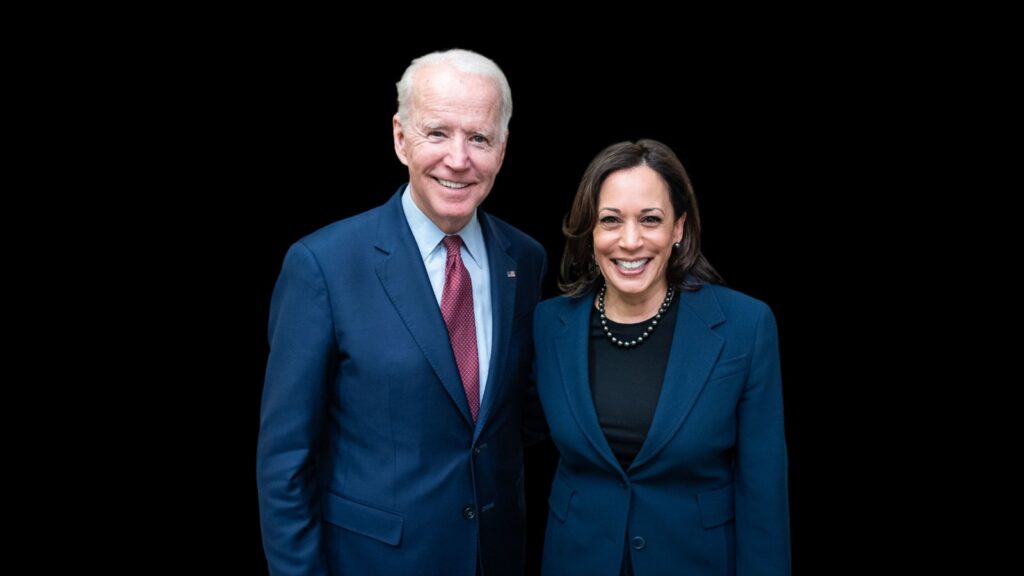On Monday, Joe Biden and Kamala Harris made their first joint appearance on the presidential campaign trail after the convention, marking Labor Day with a tribute to union workers in Pittsburgh.
“We are incredibly proud to be the most pro-union administration in American history,” said Harris. “I love Labor Day. I love celebrating it, especially here in Pittsburgh, the birthplace of the American labor movement.”
Harris spoke about the administration’s strong support for organized labor and criticized Donald Trump’s attacks on labor rights. She also expressed opposition to the proposed acquisition of US Steel by Nippon Steel, stating that this historic Pennsylvania-based company should remain under American ownership.
“US Steel is a vital American company, crucial for our nation’s strength,” Harris said. “I fully agree with President Biden: US Steel should stay American-owned and operated.”
The United Steelworkers union, which represents around 10,000 US Steel workers, has opposed the $14.9 billion deal due to Nippon Steel’s alleged violations of union rights under their current labor agreement signed in 2022. The union and the companies are currently engaged in arbitration.
Harris reiterated her support for the Protecting the Right to Organize (PRO) Act, which encompasses a series of labor reforms designed to promote unionization.
Kenny Cooper, president of the International Brotherhood of Electrical Workers (IBEW) union, introduced Biden and Harris, highlighting the significance of Harris’s tie-breaking vote for the Butch Lewis Act, which preserved the benefits of two million union members. “We only had a tie for one reason,” he noted. “We couldn’t get a single Republican senator.”
Harris also cast the tie-breaking vote for the Inflation Reduction Act, which USW International President David McCall credited with “revolutionizing the cement, chemical, glass, and steel sectors, as well as other key industries.”
Donald Trump, the Republican nominee for president, has also expressed opposition to the Nippon Steel deal, stating he would block it if elected. Biden had already announced his opposition to the deal back in March.
Biden spoke less succinctly than Harris about his administration’s accomplishments in Pennsylvania, such as investments in clean energy and infrastructure funding. He emphasized that his administration’s policies require project labor agreements that honor labor rights and mandate American-made products, contrasting this with Trump’s appointment of union-busting officials to the National Labor Relations Board.
“Wall Street didn’t build America,” Biden asserted. “The middle class built America, and unions built the middle class.”
The joint appearance by Biden and Harris offered a glimpse into their campaign strategy in the final days before the election. Biden praised Harris for having “the backbone of a ramrod and the moral compass of a saint.”
Earlier in the day, Harris was in Detroit, praising union achievements—such as the five-day work week, paid sick leave, and vacation time—during a meeting with labor leaders at Northwestern High School.
“We celebrate unions because they helped build America and its middle class,” she stated. “When union wages increase, everyone’s wages increase.”
Biden made history as the first sitting president to join a union picket line, supporting the United Auto Workers (UAW) in their dispute with major automakers in September 2023. “You guys—the UAW—saved the auto industry back in 2008 and before,” Biden declared through a bullhorn while on the picket line in Michigan. “You made sacrifices when the companies were struggling. Now they’re thriving, and you should be too.”
Shawn Fain, UAW president, has been a strong advocate for revitalizing the American labor movement and a vocal critic of Trump. “Donald Trump is all talk, but Kamala Harris takes action,” Fain said at the Democratic National Convention in August, while wearing a “Trump is a scab” T-shirt. Harris’s supporters echoed this phrase in Detroit that morning.
Despite Trump calling for Fain’s immediate dismissal during his Republican National Convention acceptance speech, the Republican nominee has been reaching out to labor voters, highlighting his renegotiation of NAFTA and proposed tariffs of 10-20% on foreign goods to bring manufacturing back to the U.S.
However, Project 2025—a conservative agenda for a potential second Trump administration, developed by the Heritage Foundation—aims to dismantle merit-based employment for thousands of unionized federal workers, alter “protected concerted activity” rules to allow easier retaliation against union organizing, and abolish the “persuader rule” that requires disclosure when companies hire union-busting consultants.
Trump has also changed his stance on the electric vehicle industry. He initially called for an end to electric car mandates but has softened his rhetoric since receiving an endorsement from Tesla CEO Elon Musk. In a social media interview with Musk, Trump praised Musk’s approach to labor relations.
“They go on strike,” Trump remarked. “I won’t name the company, but when workers strike, you say, ‘That’s fine. You’re all fired.’ And you’re seen as the best.”
This statement led Sean O’Brien, president of the Teamsters—who had spoken at the RNC convention, surprising many labor leaders—to retract his earlier support for Trump. “Firing workers for organizing, striking, and exercising their rights as Americans is economic terrorism,” O’Brien said.



